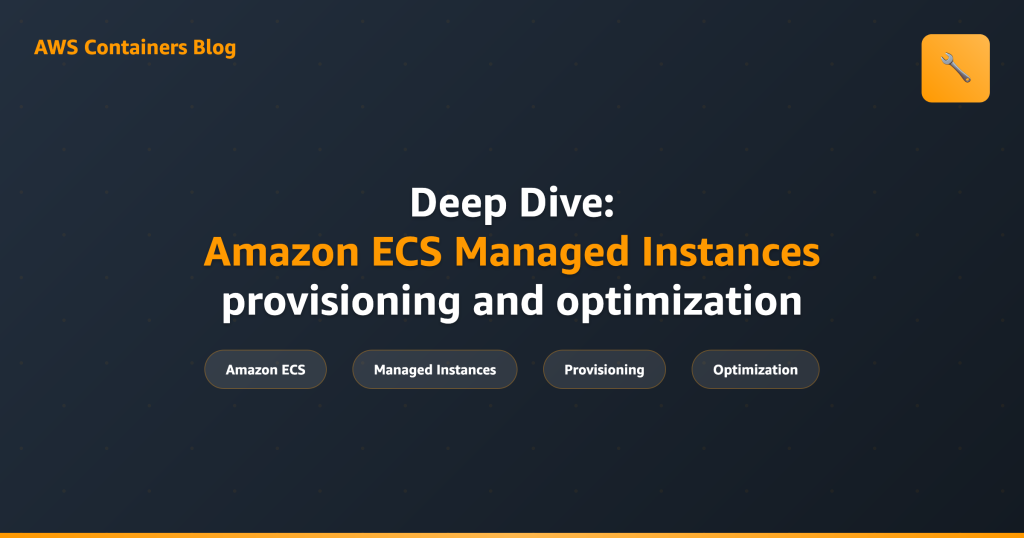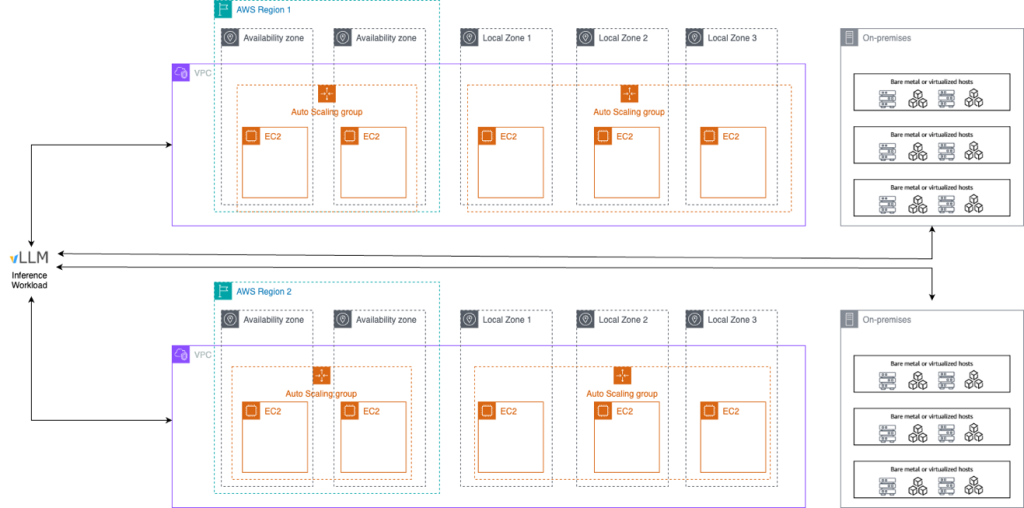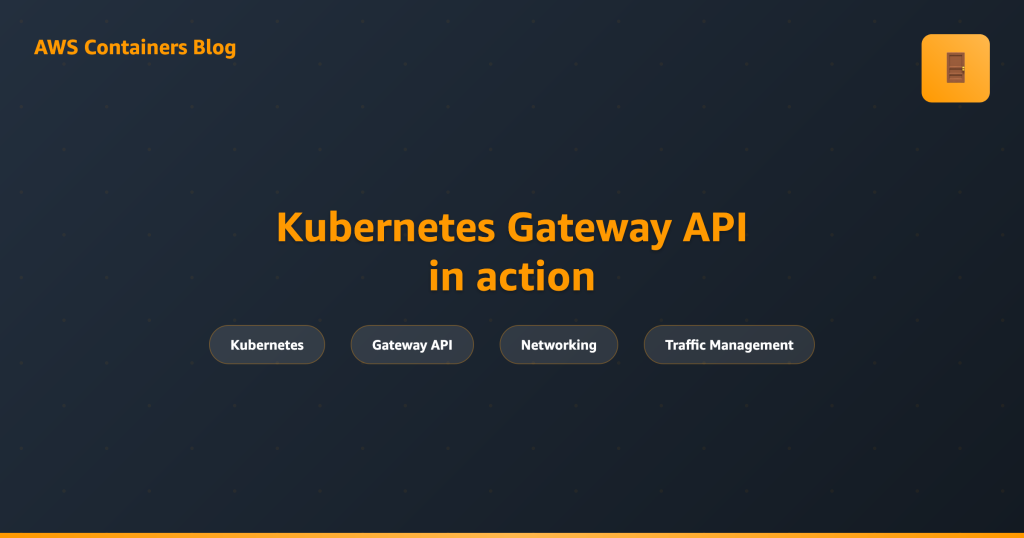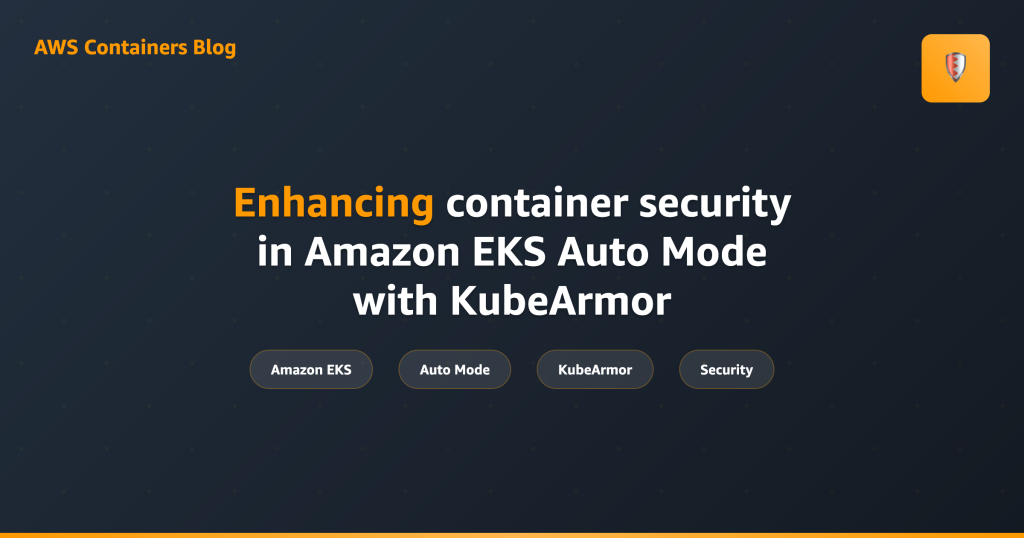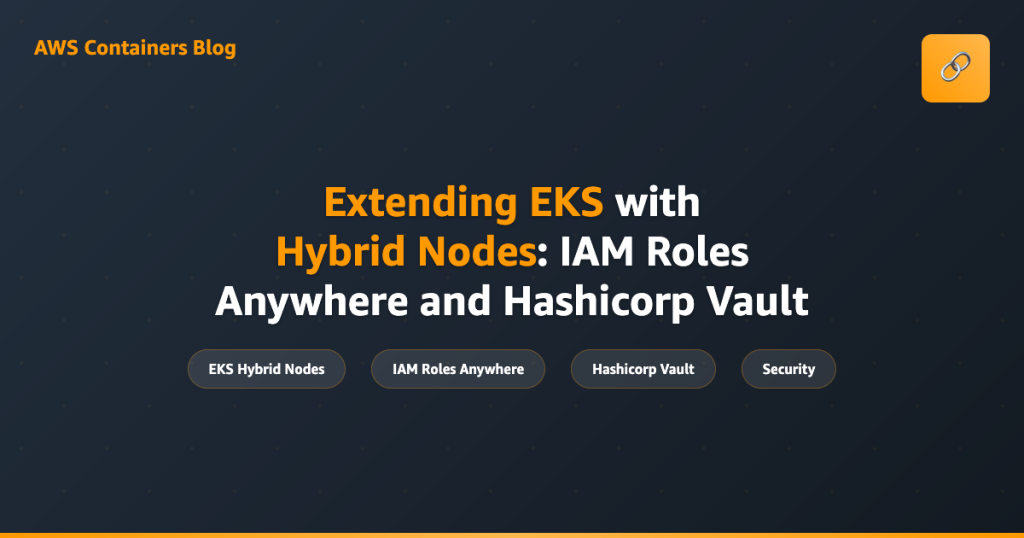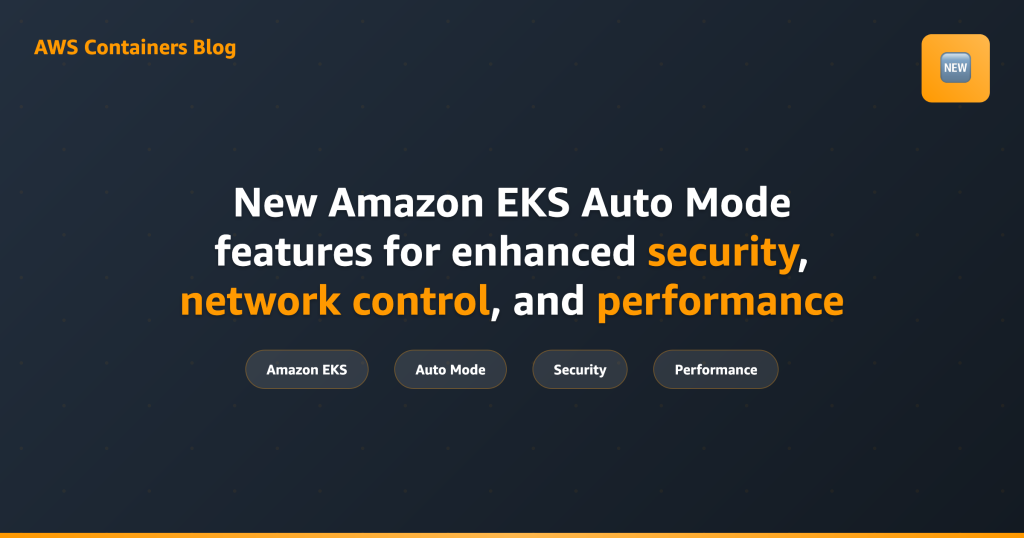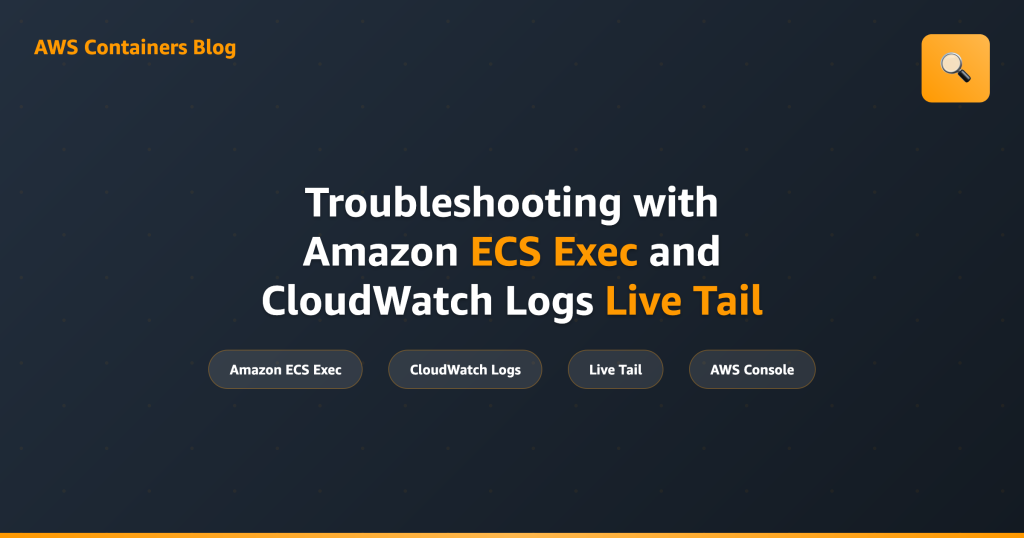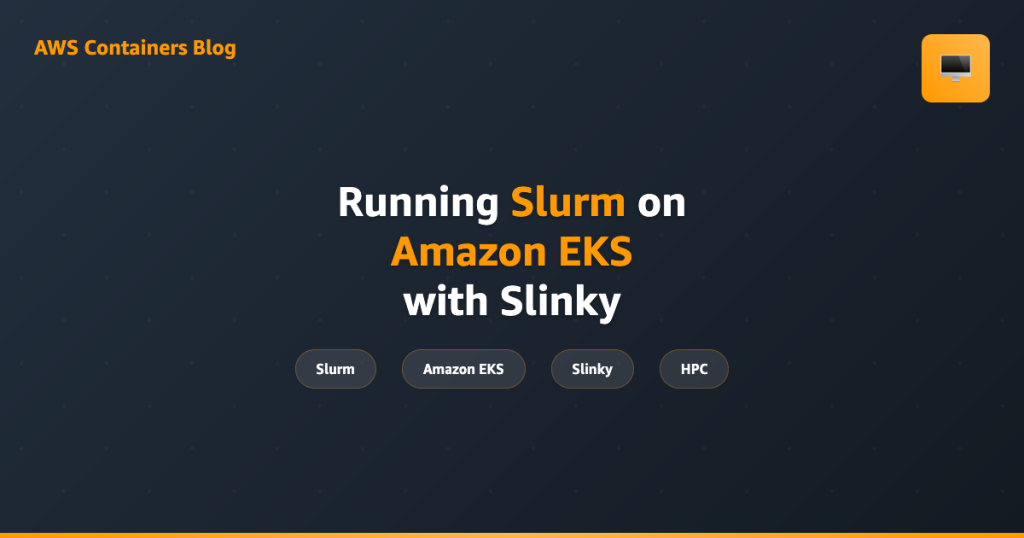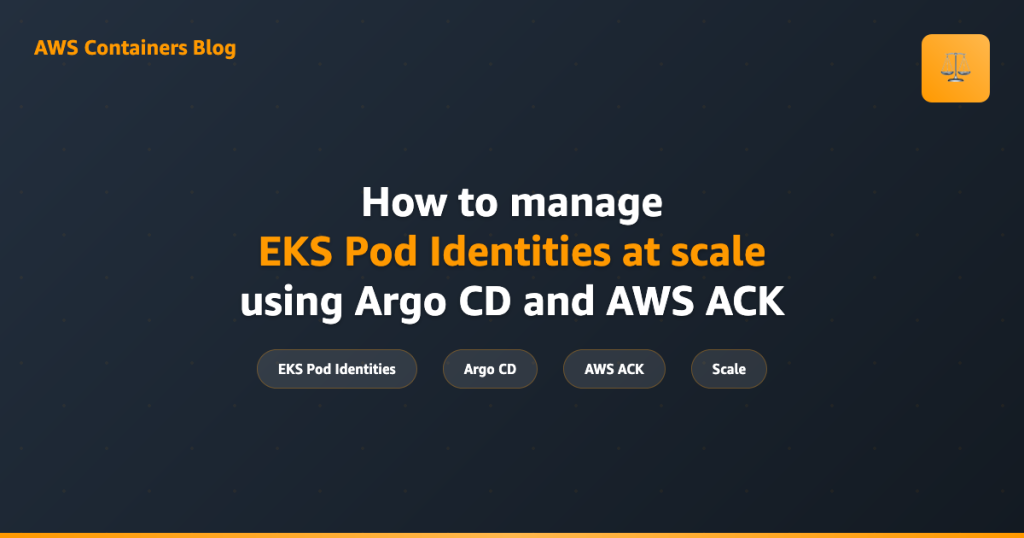Containers
Deep Dive: Amazon ECS Managed Instances provisioning and optimization
Amazon Elastic Container Service (Amazon ECS) Managed Instances is a fully managed compute option that eliminates infrastructure management overhead while providing customers access to a broad suite of Amazon Elastic Compute Cloud (Amazon EC2) capabilities, including the flexibility to select instance types, access reserved capacity, and leverage advanced security and observability configurations. By offloading operations […]
Extending GPU Fractionalization and Orchestration to the edge with NVIDIA Run:ai and Amazon EKS
In this post, we explore how AWS and NVIDIA Run:ai are extending GPU fractionalization and orchestration capabilities beyond traditional cloud regions to edge environments, including AWS Local Zones, Outposts, and EKS Hybrid Nodes. The collaboration addresses the growing demand for distributed AI/ML workloads that require efficient GPU resource management across geographically separated locations while maintaining consistent performance, compliance, and cost optimization .
Kubernetes Gateway API in action
In this post, we explore advanced traffic routing patterns with the Kubernetes Gateway API through a practical Calendar web application example, demonstrating how it streamlines and standardizes application connectivity and service mesh integration in Kubernetes. The post covers three key use cases: exposing applications to external clients through hostname-based routing, implementing canary deployments between microservices using gRPC traffic splitting, and controlling egress traffic to external services with security policies.
Enhancing container security in Amazon EKS Auto Mode with KubeArmor
In this post, we explore how KubeArmor, an open source container-aware security enforcement system, enhances the security posture of containerized workloads running on EKS Auto Mode clusters. Although EKS Auto Mode significantly streamlines cluster management by automating control plane and node operations, securing the workloads running within the cluster remains a critical user responsibility.
Extending EKS with Hybrid Nodes: IAM Roles Anywhere and HashiCorp Vault
In this post, we explore how to use AWS Identity and Access Management (IAM) Roles Anywhere, supported by HashiCorp Vault PKI, to facilitate joining EKS Hybrid Nodes to an Amazon EKS Cluster. This solution enables businesses to flexibly make use of compute resources outside of AWS by extending an Amazon Elastic Kubernetes Service (Amazon EKS) data plane beyond the AWS Cloud boundary, addressing use cases focused on data sovereignty, low latency communication, and regulatory compliance.
New Amazon EKS Auto Mode features for enhanced security, network control, and performance
In this post, we explore the latest Amazon Elastic Kubernetes Service (Amazon EKS) Auto Mode features that enhance security, network control, and performance for enterprise Kubernetes deployments. These new capabilities address critical operational challenges including capacity management, network segmentation, enterprise PKI integration, and comprehensive encryption while maintaining the automated cluster management that makes EKS Auto Mode transformative for development teams.
Troubleshooting with Amazon ECS Exec and Amazon CloudWatch Logs Live Tail in the AWS Management Console
In this post, we explore how the integration of Amazon CloudWatch Logs Live Tail and Amazon ECS Exec with AWS CloudShell in the Amazon ECS console streamlines container troubleshooting by eliminating the need to switch between multiple interfaces or maintain separate CLI configurations. These new features centralize essential debugging capabilities, allowing DevOps engineers and developers to maintain reliable container-based applications while preserving necessary security and governance controls.
Running Slurm on Amazon EKS with Slinky
In this post, we introduce the Slinky Project and explore how it enables organizations to run Slurm workload management within Amazon EKS, combining the deterministic scheduling capabilities of Slurm with Kubernetes’ dynamic resource allocation for efficient hybrid workload management. This unified approach allows teams to maximize resource utilization across both batch processing jobs and cloud-native applications without maintaining separate infrastructure silos.
How to manage EKS Pod Identities at scale using Argo CD and AWS ACK
In this post, we explore how to manage EKS Pod Identity associations at scale using Argo CD and AWS Controllers for Kubernetes (ACK), addressing the critical challenge of the eventually consistent EKS Pod Identity API. The guide demonstrates automation techniques to ensure proper IAM role associations before application deployment, maintaining GitOps workflows while preventing permission-related failures.
SaaS deployment architectures with Amazon EKS
In this post, we explore patterns and practices for building and operating distributed Amazon Elastic Kubernetes Service (Amazon EKS)-based applications effectively. We examine three deployment models – SaaS Provider Hosted, Remote Application Plane, and Hybrid Nodes – each offering distinct advantages for specific use cases as companies scale their software as a service (SaaS) offerings.
